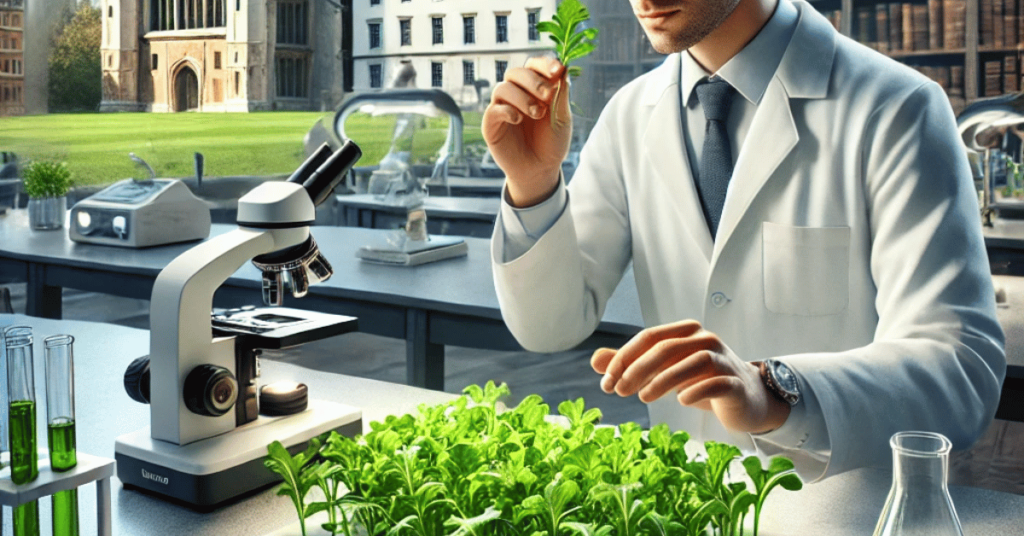Arugula researcher at Cambridge, also known as Eruca sativa or rocket, is a leafy green vegetable that has gained significant attention not just as a staple in gourmet salads but also as a crop with remarkable nutritional and agricultural potential. Researchers at the University of Cambridge are delving into the many facets of this vibrant plant, exploring its health benefits, adaptability, and potential contributions to sustainable agriculture.
The Rise of Arugula
Arugula has long been a favored choice in Mediterranean and Middle Eastern cuisines, but its popularity has surged worldwide due to its peppery flavor, high nutritional content, and versatility in culinary applications. The plant is rich in vitamins, minerals, and bioactive compounds, making it a “superfood” in the eyes of many nutritionists. However, beyond its culinary appeal, arugula is emerging as a plant of interest in scientific and agricultural research.
Research Focus at Cambridge
The research team at Cambridge—comprising botanists, agronomists, and biochemists—is investigating several critical aspects of arugula, from its genetic makeup to its role in sustainable agriculture. Below are the main areas of focus:
1. Nutritional Profiling
Arugula is a powerhouse of nutrients, including:
- Vitamins: High levels of vitamin K, vitamin C, and folate.
- Minerals: Calcium, potassium, and magnesium.
- Antioxidants: Glucosinolates and flavonoids, which have been linked to cancer prevention and anti-inflammatory properties.
Cambridge researchers are studying the precise mechanisms through which these compounds benefit human health, particularly their role in reducing oxidative stress and inflammation. By mapping out its phytochemical profile, the team aims to provide insights into how arugula could be incorporated into diets to combat chronic diseases.
2. Climate Resilience
As the global climate continues to change, agricultural systems face significant challenges. Arugula is a hardy plant that can thrive in diverse conditions, making it a candidate for resilient agriculture. The Cambridge team is:
- Studying the genetic traits that enable arugula to adapt to various climates.
- Developing arugula strains that are more resistant to pests, diseases, and extreme weather conditions.
3. Sustainable Agriculture
Arugula grows quickly and requires relatively low inputs compared to other leafy greens. Its adaptability makes it an excellent choice for urban farming, vertical agriculture, and regenerative farming practices. Cambridge researchers are investigating how arugula can be integrated into crop rotation systems to:
- Improve soil health.
- Reduce dependency on chemical fertilizers and pesticides.
- Support biodiversity by serving as a cover crop.
4. Genomic Research
The team at Cambridge is also involved in decoding the genome of arugula. Understanding its genetic structure allows researchers to:
- Identify traits for targeted breeding programs.
- Enhance its nutritional profile through biofortification.
- Increase its resistance to environmental stressors.
Innovative Applications
Culinary and Nutritional Innovation
Arugula is not just for salads anymore. Cambridge researchers are collaborating with food scientists and culinary experts to explore its potential in:
- Functional foods: Developing arugula-based smoothies, teas, and supplements.
- Food preservation: Leveraging its natural antimicrobial properties to prolong shelf life.
Medicinal Uses
Emerging studies suggest that the bioactive compounds in arugula have medicinal properties. Cambridge’s biochemists are particularly interested in:
- Cancer prevention: Investigating the anti-carcinogenic effects of glucosinolates.
- Heart health: Studying the plant’s ability to lower blood pressure and improve vascular function.
- Bone health: Evaluating its high calcium and vitamin K content for osteoporosis prevention.
Environmental Impact
By integrating arugula into sustainable farming systems, researchers are exploring its role in carbon sequestration, water conservation, and promoting ecological balance.
The Challenges of Arugula Research
Despite its many advantages, arugula research faces challenges:
- Genetic Diversity: Limited genetic resources for arugula can hinder breeding efforts.
- Consumer Awareness: Educating consumers about its benefits and uses remains a hurdle.
- Scaling Production: Ensuring consistent quality and yield in large-scale farming operations.
The Cambridge team is addressing these issues through interdisciplinary research and international collaboration.
Future Prospects
The future of arugula researcher at Cambridge looks promising. As scientists continue to uncover the plant’s genetic, nutritional, and environmental potential, its role in addressing global challenges—from food security to climate change—will likely expand. Cambridge’s work is laying the foundation for:
- Enhanced crop varieties with higher resilience and nutritional content.
- Innovative farming practices that reduce ecological footprints.
- New dietary recommendations for improved public health.
Conclusion
Arugula researcher at Cambridge may be small, but its impact is mighty. Through the dedicated efforts of researchers at Cambridge, this unassuming leafy green is being transformed into a cornerstone of future food systems. Its rich nutritional profile, adaptability, and environmental benefits position it as a vital crop for a sustainable and healthy future.
FAQs
1. What makes arugula a superfood?
Arugula is rich in essential nutrients like vitamin K, vitamin C, calcium, and antioxidants such as glucosinolates. These compounds contribute to its anti-inflammatory, anti-carcinogenic, and heart-health-promoting properties.
2. Why is arugula important for sustainable agriculture?
Arugula grows quickly, requires low input, and can thrive in various conditions, making it an ideal candidate for sustainable farming practices, including urban and regenerative agriculture.
3. What are Cambridge researchers focusing on in arugula research?
They are studying arugula’s nutritional profile, climate resilience, genomic structure, and potential applications in medicine and sustainable farming.
4. Can arugula be used for medicinal purposes?
Emerging research suggests arugula’s bioactive compounds may help prevent cancer, improve heart health, and support bone health, but further studies are needed for clinical validation.
5. What are the challenges in scaling arugula production?
Challenges include limited genetic diversity, educating consumers about its benefits, and ensuring consistent quality and yield in large-scale farming operations.
6. What innovations are being explored with arugula?
Innovations include developing functional foods, using arugula’s natural antimicrobial properties for food preservation, and incorporating it into sustainable farming systems to improve soil health and biodiversity.







